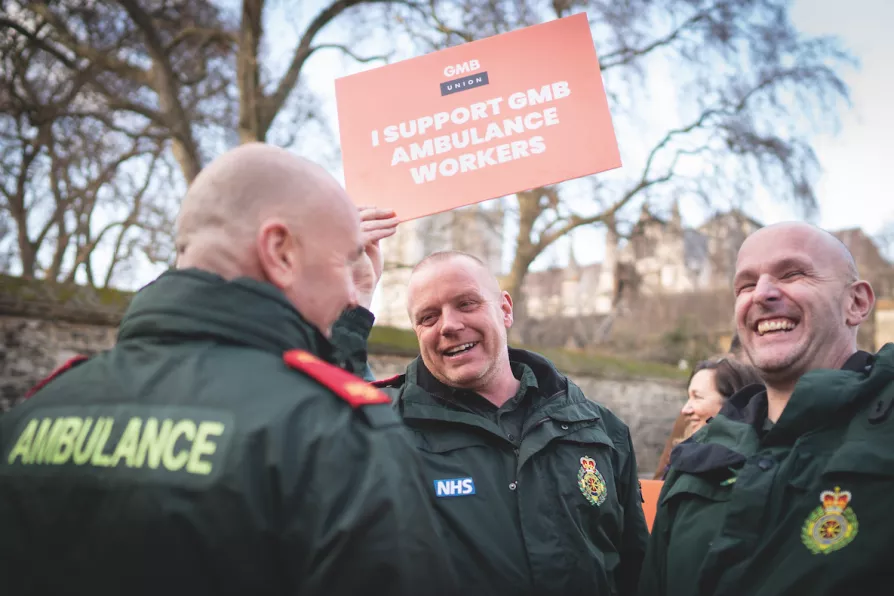As the RMT Health and Safety Conference takes place, the union is calling for urgent action on crisis of work-related stress, understaffing and the growing threat of workplace assaults. RMT leader EDDIE DEMPSEY explains

 GROWING CONFIDENCE: Ambulance workers from the GMB gather on College Green, Westminster amid the recent industrial action across the NHS
GROWING CONFIDENCE: Ambulance workers from the GMB gather on College Green, Westminster amid the recent industrial action across the NHS
AS ANYONE who has worked on the front line of the NHS and ambulance trusts knows, comprehensive healthcare in this country is being eroded by aggressive cutbacks, restructures and privatisation.
Recent national strike action shone a light on the unprecedented scale of the struggle to deliver care safely. After decades of cutbacks there are not enough staff or beds to cope with demand in the NHS. And the policies of successive governments are to blame.
It is simply staggering, and reflective of decades of lull in trade union activity, that field medicine conditions are becoming normalised in one of the richest countries in the world.

A past confrontation permanently shaped the methods the state will use to protect employers against any claims by their employees, writes MATT WRACK, but unions are readying to face the challenge

Since 2023, Strike Map has evolved from digital mapping at a national level to organising ‘mega pickets’ — we believe that mass solidarity with localised disputes prepares the ground for future national action, writes HENRY FOWLER












